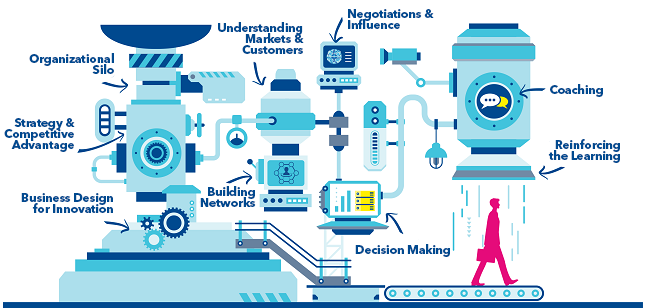What the C-suite looks for in Senior Management
Posted on August 16, 2016
By Emily McCutcheon
Being an experienced manager isn’t enough to help you move into a more senior position any more. To succeed in today’s rapidly changing world, great managers need to develop their leadership capabilities to continue your journey to senior leadership.

Here are some of the skills the c-suite is looking for when they think about promoting internally:
Holistic thinking
Think more broadly about the success of your organization. More than just your department or division, how can you help the entire business unit or enterprise? How can you work more closely with and support other business functions?
Understanding the relationships between multiple functional areas is key to integrating their projects and activities so the entire organization can succeed.
Conflict resolution and negotiation skills
By thinking more about your counterparts in other business units you can understand where they’re coming from and why conflicting objectives are so common. With a better understanding of the entire organization, you can become a trusted resource outside of your unit.
There’s always room for improvement, especially when it comes to conflict resolution and negotiation. By developing the skills and approaches to facilitate effective conflict resolution you can get down to the real issues with less wasted time.
A strategic mindset
A good strategy isn’t handed down from the most senior member of your organization – it’s developed based on information from all levels of the organization, and should evolve with the changing needs of your business. Truly great leaders know how to develop plans and strategies to minimize conflicting objectives and reduce barriers to collaboration, but they’re also flexible and willing to adapt and change.
Appreciate the many and varied factors both inside and outside your organization that drive strategic decision making, and use them to guide your planning.
Problem solving
There’s nothing wrong with solving a problem intuitively, but there’s a great deal of additional value to be found in learning and applying a strategic model of problem solving. You can enhance your ability to drive innovation, evaluate business opportunities, and even better negotiate by using model-based problem solving and design thinking principles.
Coaching
And of course, a great leader has great mentors and coaches. A good coach will review how you handle challenges on the job and work with you to develop a personalized action learning plan.
Organizational Leadership: People, Culture and Performance program addresses all of these skills and more, and is designed to help you expand your influence and effectiveness within your organization. Apply now.